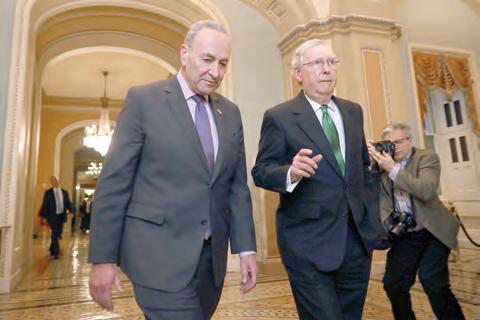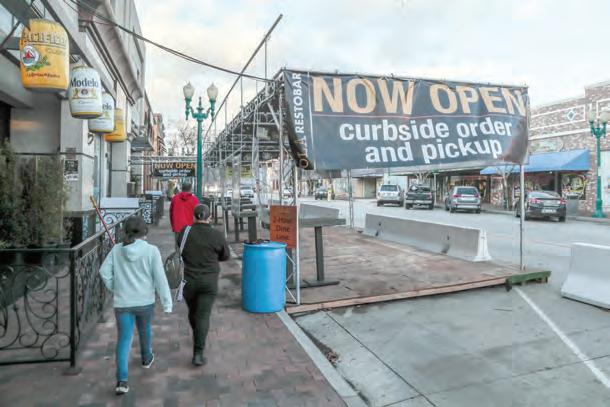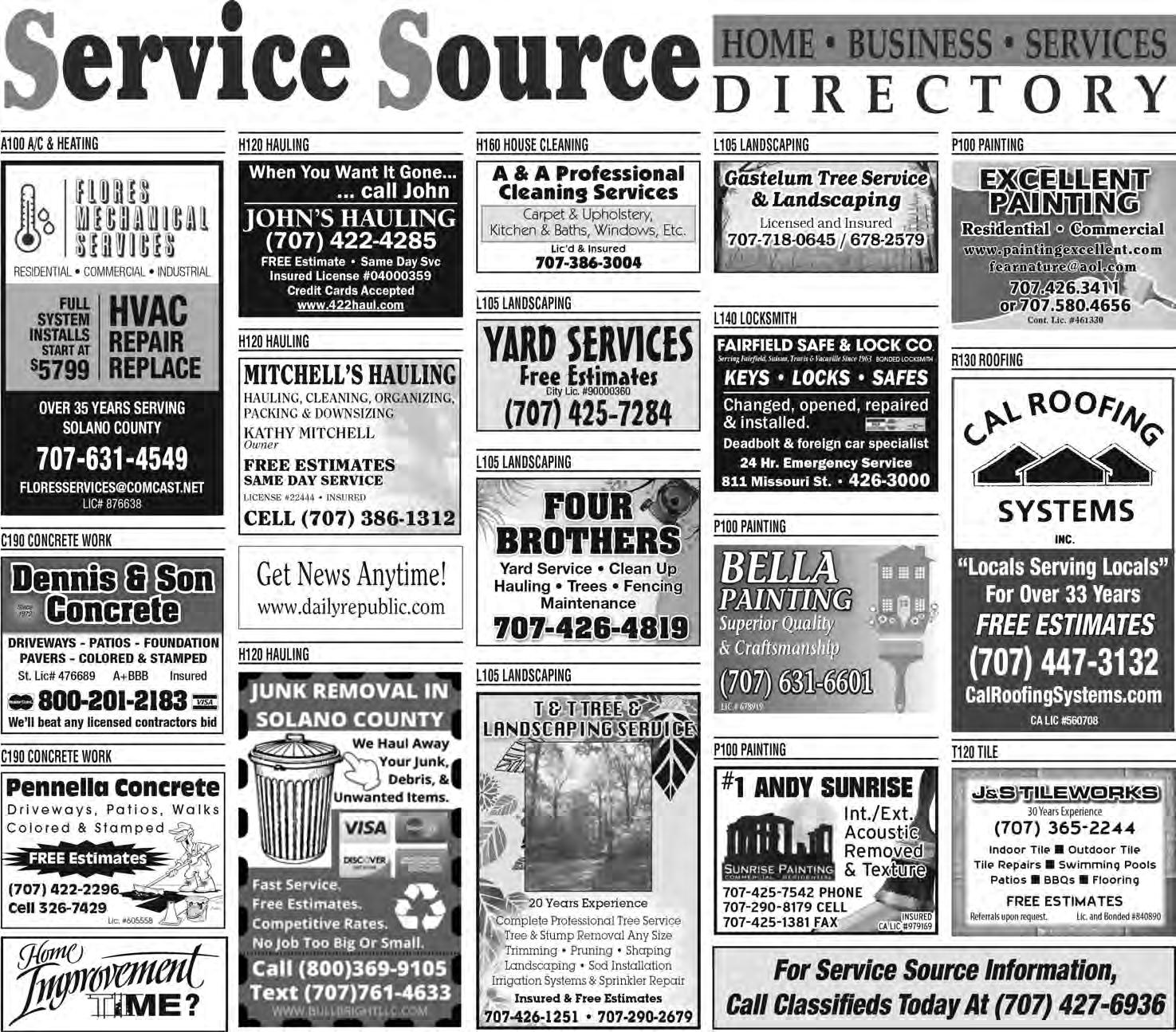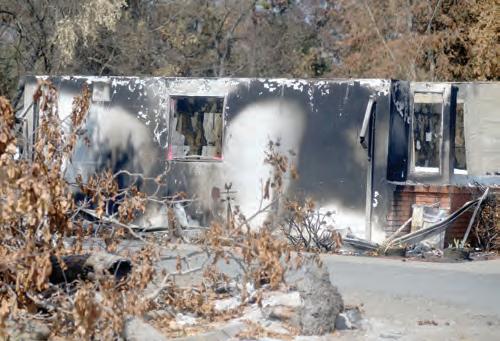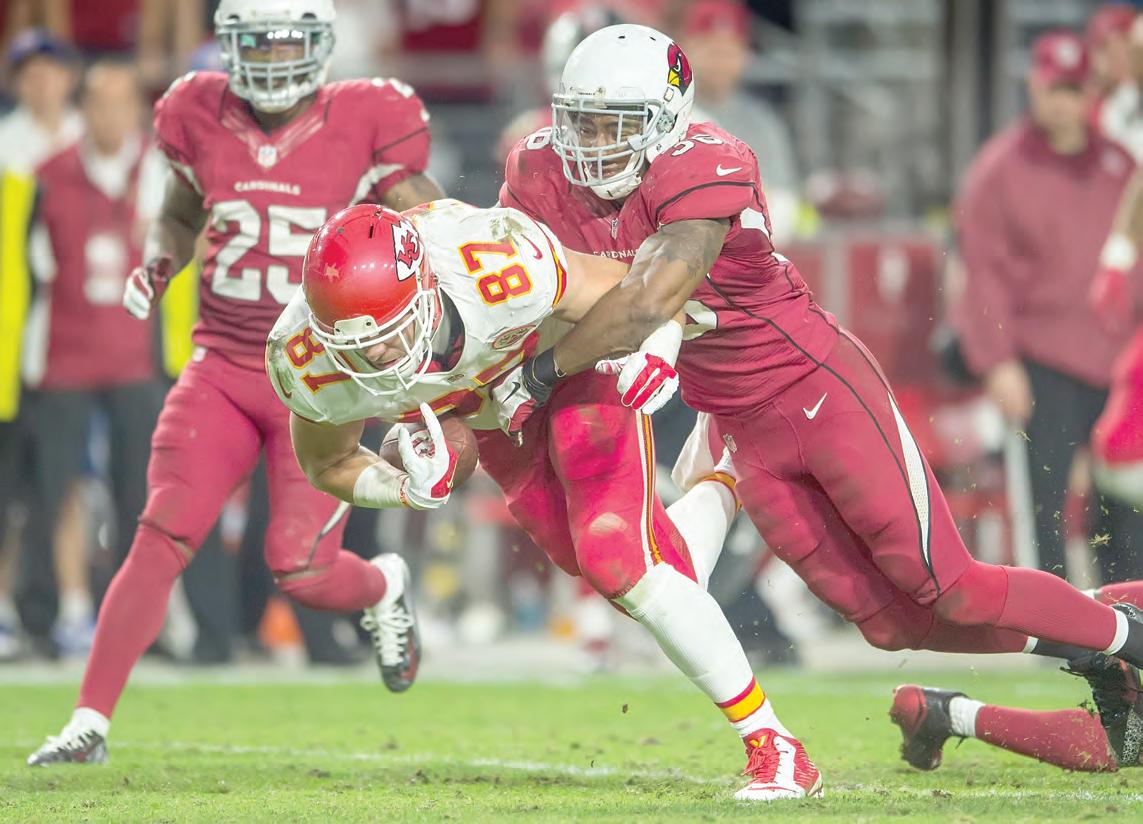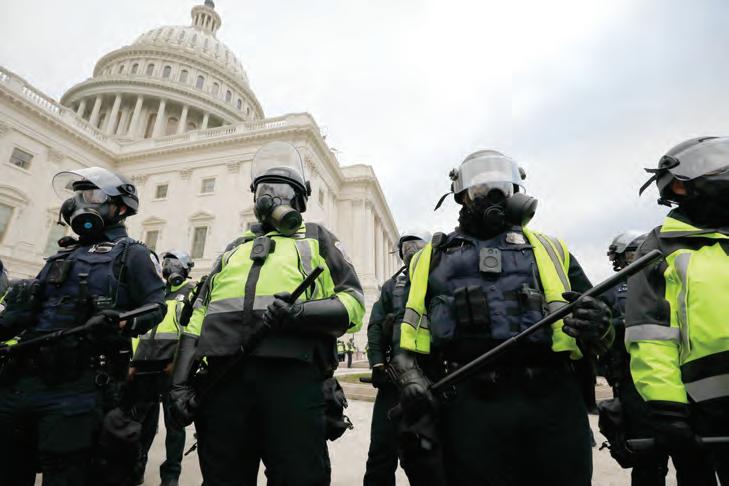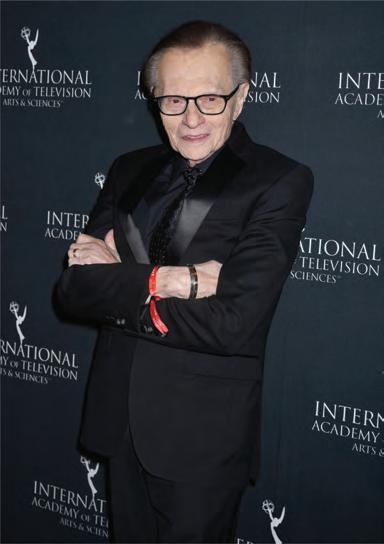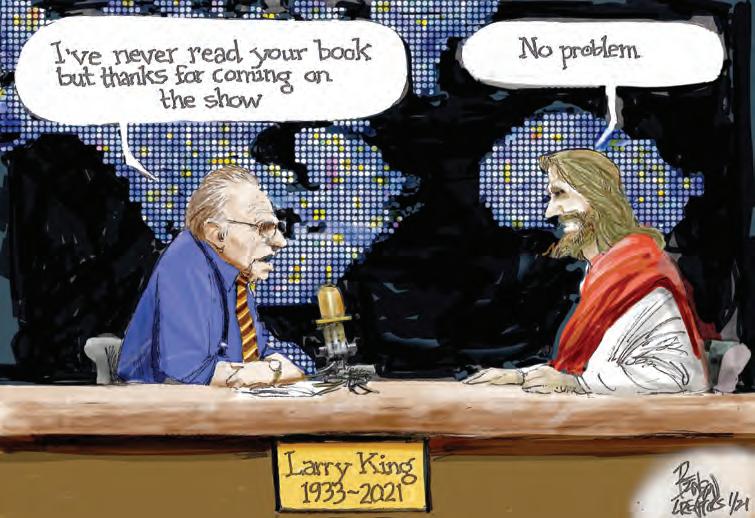
9 minute read
9 9
Wednesday’s TV sports
Note: Some events may be canceled or moved to different times and/or stations because of Covid-19 considerations Basketball College men •Miami at Florida State, ACC, 3 p.m. •Vanderbilt at Florida, SEC, 3:30 p.m. •Creighton at Seton Hall, FS1, 4 p.m. •Penn State at Ohio State, BIG TEN, 4 p.m. •Marquette at Providence, CBSSN, 4 p.m. •Georgia at South Carolina, ESPN2, 4 p.m. •Wake Forest at North Carolina State, ACC, 5 p.m. •Ole Miss at Arkansas, SEC, 5:30 p.m. •St. John’s at DePaul, FS1, 6 p.m. •Kansas State at Baylor, ESPN2, 6 p.m. •Washington State at Colorado, ESPNU, 6 p.m. •Boise State at Colorado State, CBSSN, 6 p.m. •Wisconsin at Maryland, BIG TEN, 6 p.m. •Utah State at UNLV, FS1, 8 p.m. College women •Maryland at Ohio State, ESPNU, 4 p.m. •Villanova at Xavier, FS2, 4 p.m. •Stanford at Washington St., PAC12, P12BA, 6:30 p.m. NBA •Sacramento at Orlando, NBCSCA, 4 p.m. (Vacaville only) •L.A. Lakers at Philadelphia, ESPN, 4:30 p.m. •Minnesota at Golden State, NBCSBA, ESPN, 7 p.m. Golf •College, Southwestern Invitational, final round, GOLF, 1:30 p.m. •European Tour, Omega Dubai Desert Classic, first round, GOLF, 8 p.m. Hockey NHL •Chicago at Nashville, NBCSN, 4:30 p.m. Soccer •Premier League, Manchester United vs. Sheffield
United, NBCSN, noon
Thursday’s TV sports
Basketball College men •Oregon State at USC, ESPNU, 2 p.m. •Wyoming at San Diego State, FS1, 2 p.m. •Michigan State at Rutgers, FS1, 4 p.m. •UNC Asheville at Winthrop, ESPNU, 4 p.m. •Louisiana Tech at Southern Mississippi, CBSSN, 4 p.m. •,Memphis at SMU, ESPN2, 4 p.m. •Belmont at Austin Peay, ESPNU, 6 p.m. •UAB at Middle Tennessee, CBSSN, 6 p.m. •Oregon at UCLA, ESPN, 6 p.m. •Houston at Tulane, ESPN2, 6 p.m. •Villanova at Connecticut, FS1, 6 p.m. •California at ASU, FS1, 8 p.m. •Stanford at Arizona, ESPN2, 8 p.m. College women •Rutgers at Maryland, BIG TEN, 1 p.m. •Connecticut at Arkansas, ESPN2, 2 p.m. •Northwestern at Iowa, BIG TEN, 3 p.m. •Georgia Tech at Miami, ACC, 3 p.m. •Alabama at Kentucky, SEC, 3:30 p.m. •South Carolina at Mississippi State, ESPN, 4 p.m. •Ohio State at Indiana, BIG TEN, 5 p.m. •North Carolina at Louisville, ACC, 5 p.m. •Texas A&M at Auburn, SEC, 5:30 p.m. NBA •L.A. Clippers at Miami, TNT, 4 p.m. •Portland at Houston, TNT, 6:30 p.m. Golf •European Tour, Omega Dubai Desert Classic, first round, GOLF, 3:30 a.m. •PGA Tour, Farmers Insurance Open, first round, GOLF, noon •European Tour, Omega Dubai Desert Classic, second round, GOLF, 11:30 p.m. Hockey NHL •San Jose at Colorado, NBCSCA, 6 p.m. Soccer •Premier League, Tottenham Hotspur vs. Liverpool,
NBCSN, 11 a.m. •Super Lig, Gaziantepspor vs. Galatasaray, BEIN, 7:55 a.m. (Friday)
Semien: To Jays
From Page B1
not to extend Semien a one-year qualifying offer for 2021, worth $18.9 million, in November.
The Blue Jays have been one of the active teams in a late-developing offseason. Before Semien, Toronto signed free-agent outfielderGeorge Springerto a six-year mega-deal reportedly worth $150 million last week and have added pitchers Robbie Ray, Kirby Yates and Tyler Chatwood in free-agent signings this winter.
So far, the A’s have counted free agency in losses. Closer Liam Hendriks (3 years, $54 million, White Sox), outfielder Robbie Grossman (2 years, $10 million, Tigers) and pitcher Mike Minor (2 years, $18 million, Royals) have all signed elsewhere this winter. And Tuesday evening, second baseman Tommy La Stella was reportedly nearing a deal with the Giants – a potential loss that would leave the A’s having to replace their full starting middle infield.
Multiple agents have told The Chronicle this offseason the A’s have indicated they won’t spend much money after a pandemic-shortened season that impacted revenues, and the departure of Semien – a respected player with local ties – for a one-year deal elsewhere reinforces that view.
Traded by the White Sox to the A’s after the 2014 season, Semien became Oakland’s everyday shortstop right away and made significant defensive strides working with then-coach Ron Washington, becoming a Gold Glove finalist at the position in 2018 and 2019. 50 votes shy of making the cut, with one last chance for both next year.
This year’s shutout brings to a halt an unprecedented expansion of the rolls of Cooperstown, with the writers electing 22 players between 2014 and 2020 – the most new entrants to the Hall of Fame in any sevenyear span since the writers began voting in 1936 – including four each in 2015, 2018 and 2019.
But this summer’s induction, should Hall of Fame officials permit it to go forward, would still see four people enshrined: Derek Jeter and Larry Walker, who were elected by the writers in January 2020, and Ted Simmons and former union chief Marvin Miller, who were elected by the Modern Baseball Era Committee in December 2019. All were due to be inducted in July 2020 until the ceremony was canceled because of the coronavirus pandemic.
Further down the ballot, a handful of candidates made strong leaps that positioned them to make the cut in the future. The largest gain was made by third baseman Scott Rolen, who went from 35.3% a year ago, his third year on the ballot, to 52.9% this time. Others who enjoyed big increases were reliever Billy Wagner (46.4% in his sixth year on the ballot), first baseman Todd Helton (44.9% in his third year) and slugger Gary Sheffield (40.6% in his seventh year).
Fourteen voters, the most in the history of the writers’ vote, cast blank ballots this year – either as a protest or to indicate they felt none of the 25 candidates on the ballot were worthy. Bonds From Page B2 far-right political beliefs weren’t a problem for him when he received 100 percent of the vote. There’s no doubt Schilling is less couth, but why is he held to a different standard than the only man in the history of the Hall of Fame to receive a unanimous vote?
Mike Piazza, Jeff Bagwell, and Ivan Rodriguez are all in the Hall and are all suspected of using performanceenhancing drugs. That’s only to name a few. Was it proven they took them? No more than it was proven that Bonds and Clemens did.
The difference is that Bonds and Clemens were ensnared in federal probes. Both players claimed that they never willingly took PEDs. After long legal processes, neither has a conviction on their record.
Do I believe both of them took performanceenhancing drugs? Of course. But why would they still be held to higher scrutiny than folks already in the Hall of Fame?
The cognitive dissonance is startling.
There’s only one explanation for it, and it’s not a flattering one:
This is personal for too many of the 400-or-so baseball writers with ballots.
No one debates the numbers or the impact of Bonds, Clemens, or Schilling. No, their exclusion is about writers who are trying to maintain a final shred of self-importance in a sport that’s fading fast. They’re big-timing the biggest names, under the guise that it makes them bigger; that it accomplishes something worthwhile.
It doesn’t. It’s just petty and small.
In recent years, a handful of prominent baseball writers . . . have decided to stop voting for the Hall of Fame or said they were considering stopping.
The Hall of Fame, in its instructions to voters, asks them to make their choices based on not only players’ record and ability but also their “integrity, sportsmanship (and) character” – words many voters have cited in refusing to choose steroid-tainted sluggers since the first of them, Mark McGwire in 2007, began appearing on the ballot.
Schilling presented an altogether different calculus, with some voters acknowledging his career record – which includes 216 regular season wins, 3,116 strikeouts and a dazzling 11-2 record and 2.23 ERA in the postseason – was worthy of election but opting to leave him off their ballots because of his political views and social media behavior.
Schilling has endorsed the lynching of journalists and was fired by ESPN in 2016 for mocking transgender people. More recently, he has voiced support for the perpetrators of the attempted insurrection at the U.S. Capitol. That was well after the deadline for voters to submit their ballots; however, in its wake at least one voter petitioned the Hall of Fame, unsuccessfully, to alter their ballot retroactively to a “no” vote for Schilling.
“Curt Schilling needs to know, or be reminded, there are consequences to what he says,” Mark Faller, sports editor of the Arizona Republic, wrote in a column last month explaining his “no” vote for Schilling. “ . . . If he ever deserved this honor, he lost it by his own words and actions. He does not deserve to be on that podium in July.”
Other voters have pointed out the hypocrisy of applying the character clause to Schilling, Bonds, Clemens and others when the rolls of Cooperstown already include various scoundrels, womanizers and racists – as well as, almost certainly, steroid users who did not get caught.
After years of steady gains among voters, Schilling’s candidacy appeared to reach a crucial benchmark a year ago, when he was named on 278 of 397 ballots cast – or 70%. In the history of the writers’ ballot, 20 of the 21 players who hit the 70% mark with additional years of eligibility eventually gained election. (The lone exception, Jim Bunning, would be voted in by the Veterans Committee.)
In a letter to the Hall of Fame that he shared on his Facebook page following the release of the vote totals Tuesday, Schilling defended his record, both as a pitcher and as a citizen, and accused the media of distorting his image for the public with “hit pieces” against him.
“My love of this country has always been worn on my sleeve,” he wrote. The writers who covered him as a player, he added, “KNOW what they are claiming is untrue yet they quote, re-quote and link to one another story after story that began as lies and grew into bigger ones.”
Schilling also wrote that he is “at peace” with the notion he will not get into Cooperstown via the writers’ ballot and asked that his name be withdrawn from next year’s ballot.
This year’s shutout could lend more ammunition to critics who say the writers are the wrong group to adjudicate debates over character and integrity, let alone decide whose career body of work was and wasn’t worthy of Cooperstown. Increasingly, those critics include many of the writers eligible to cast votes. (The Washington Post is among a handful of media outlets that do not permit their otherwise eligible employees to vote for the Hall of Fame.)
In recent years, a handful of prominent baseball writers, including Buster Olney and Jeff Passan of ESPN and Ken Rosenthal of the Athletic, have decided to stop voting for the Hall of Fame or said they were considering stopping – out of frustration, as Rosenthal wrote, with “the inconsistencies we cannot avoid, the false equivalencies we create [and] the rationalizations that require leaps in logic.”
The period of reflection regarding the candidacies of Bonds, Clemens and Schilling is nearly expired, with all three facing a 10th and final year on the ballot.
But for anyone wishing the character debate would simply go away, there is bad news: Among the players who will appear for the first time on next year’s ballot are David Ortiz and Alex Rodriguez, sluggers associated with steroids during their careers and whose candidacies all but ensure the character clause will be in play for at least
another decade.

